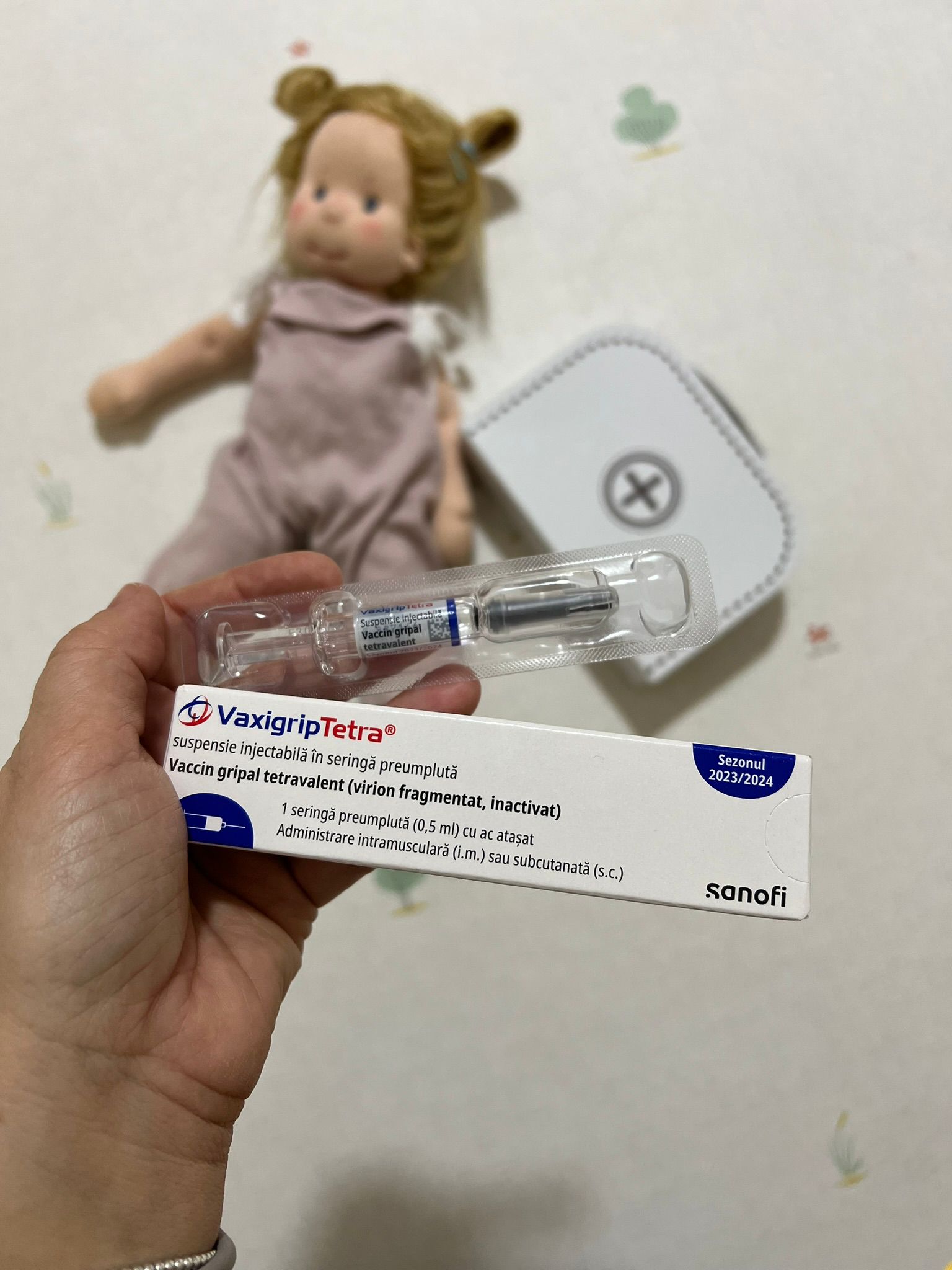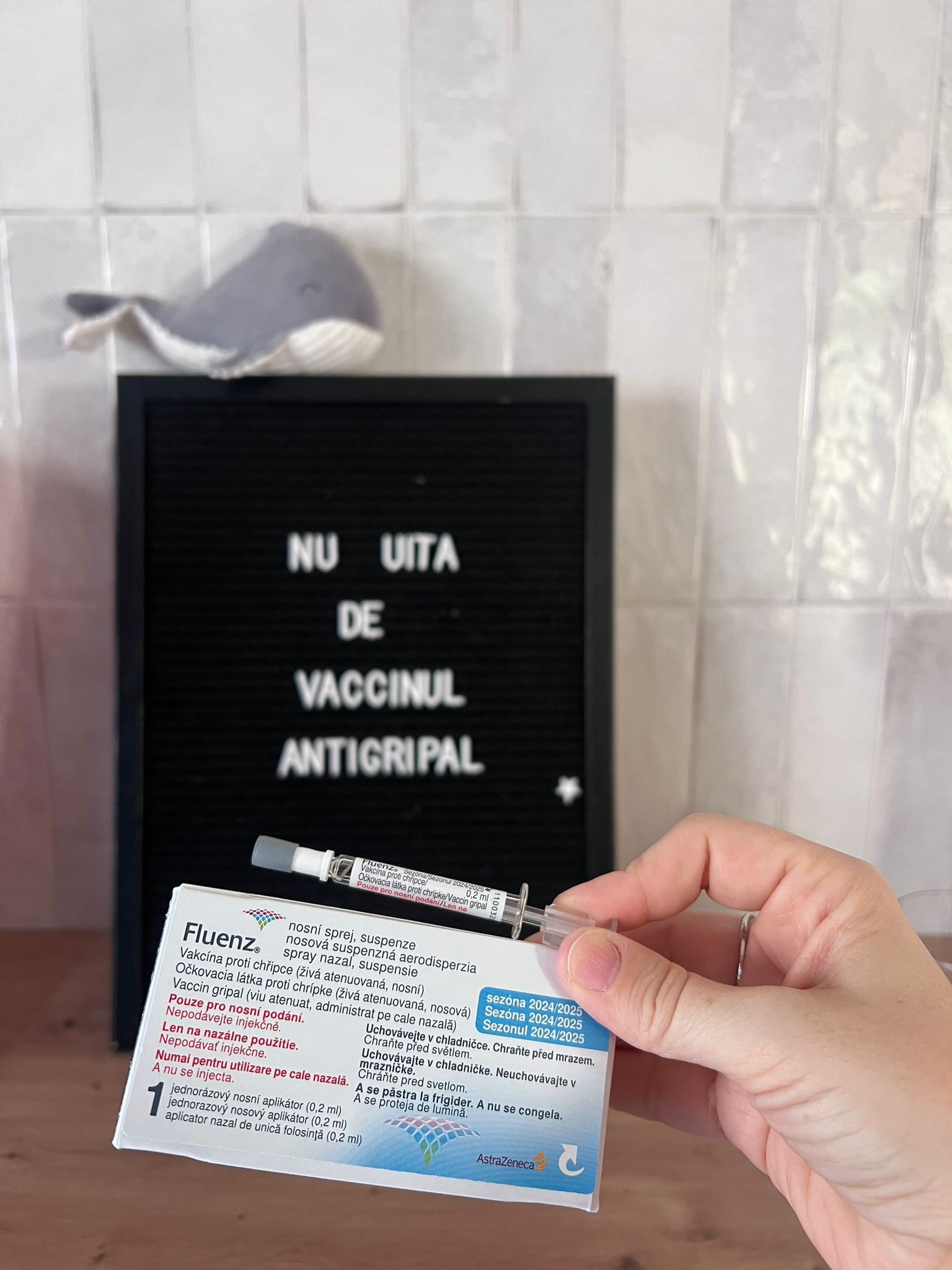Table of Contents
- 0.1 What causes the flu in children?
- 0.2 How is it transferred?
- 0.3 When is a child with the flu contagious?
- 0.4 Who are the children at risk?
- 0.5 How does the flu manifest itself in children?
- 0.6 When does it become dangerous?
- 0.7 How is it determined?
- 0.8 How is it treated?
- 0.9 How do we prevent the flu?
- 0.10 What do you need to know about flu vaccines?
- 1 What are the key differences between the flu and a common cold in children, and how can parents easily distinguish between the two?
Dr. Alexandra Constantin is a pediatrician with ten years of experience in this specialty. He says he works every day with passion and passion. He graduated in medicine in Târgu Mureș, then gained professional experience in Tg. Mureș, Cluj-Napoca and Sighisoara, years in which he had a diversified activity, from the state hospital with weekly guards, to working in private hospitals, private offices and even a pediatric call center. Today he works at Polisano Medlife Clinic in Sibiu. She is the doctor who spoke to the Advisory Tower about the flu in children, from the effects of this cold to treatment and prevention.
Dr. Alexandra Constantin says that the years she worked in different hospitals and systems helped her to clarify her thinking, but also her practice.
“As a pediatrician, I believe it is my duty to support parents with the necessary information and guidance so that any problem can be prevented or treated as soon as possible. Inside and outside the office, communication is very important to me. I want every parent to leave the office with confidence, with answers to their concerns and a simple treatment plan, if necessary,” says Alexandra Constatin.
The doctor responded to the Council Tower’s invitation to talk about the flu in children, a flu that may look like any other but which, under certain conditions, can worsen to the point of death.
“Influenza is a contagious viral disease that affects the respiratory tract. This is one of the worst viral diseases but also the most common in the cold season. It is manifested by high fever, muscle pain, cough and other symptoms. In most cases, children have symptoms that last about a week, but some children may have more severe forms of the disease that require hospitalization,” says Dr. Alexandra Constantin.
What causes the flu in children?
Influenza is caused by influenza viruses Influenza A and B, rarely type C. These viruses cause epidemics almost every year in the cold season. Viruses from the influenza group have a unique characteristic – they change or mutate frequently, which is why we are exposed to new types of flu viruses every year. For this reason and the reason for vaccination every season.
How is it transferred?
The flu virus is passed from child to child through coughing or sneezing. The child can contact the virus by touching other objects that have already been contaminated by a child with the flu, such as toys, a cup of water, knives, pens, a door handle or other surface.
When is a child with the flu contagious?
A child with the flu is contagious 24 hours before the onset of symptoms and then five to seven days after the first symptoms of the illness appear.
Just because the flu is contagious before the first symptoms appear, children can easily contact the virus, especially in groups visited by children, where they use toys or common objects and then touching their mouth, nose or eyes.
Who are the children at risk?
There are certain categories of children who are at greater risk of complications or even death if they get the flu. This risk category includes children under the age of five, especially those under the age of two, children taking chronic aspirin or drugs containing salicylate, or any child with a chronic disease: asthma, diabetes, obesity, heart disease, neurological, for example. Here I want to emphasize that obesity is also a chronic disease, and that these children have a greater risk of complications or severe forms of the flu.
How does the flu manifest itself in children?
Influenza is a viral infection that affects the respiratory system, but this condition can also appear with general symptoms that start suddenly: a high fever that can reach 39-40°C arrival, muscle pain, headache, feeling tired or lack of appetite. As respiratory symptoms are dry cough, sore throat and rarely nasal secretions or stuffy nose. In some cases, children may have digestive symptoms such as vomiting. In most cases, the symptoms improve after seven days, but there are also exceptions where the child has a persistent cough for two or three weeks or feels tired.
When does it become dangerous?
In some cases, and especially in children from risk groups, the flu can cause a number of problems. These include otitis, breathing problems, pneumonia and reduced oxygen saturation, conditions that require hospitalisation. Children who have a chronic illness and who get the flu may be making the existing illness worse. It is important to remember that the flu can even cause death.
How is it determined?
Most of the time, the classic symptomatology is enough to diagnose the flu after a medical consultation. In some cases, when the situation is uncertain, if the child has come into contact with a confirmed case of influenza or antiviral treatment is needed, the doctor will recommend a rapid test of the nasal exudate and pharyngeal.
How is it treated?
The treatment of influenza depends on the age of the child, the severity of the disease, the general state of health of the child, but also on other diseases related or not. The aim of treatment is to reduce symptoms or even prevent the disease.
Oseltamivir is an antiviral drug used to treat influenza virus infections. This medicine can be used for the treatment of children of any age but also in the prophylaxis of illness after exposure. When the child has come into contact with a confirmed case of influenza, he can receive treatment with Oseltamivir to prevent infection or complications in case of illness.
I emphasize that treatment with Oseltamivir is not indicated for all children who have the flu, to be reserved only for children from risk groups, those with severe forms of the disease or when flu associated with poor general condition. Treatment is most effective if started within the first 48-72 hours of the onset of symptoms.
In addition to antiviral medication, the child will also receive symptomatic treatment: antipyretics Paracetamol or Ibuprofen when he has a fever or a headache, spray without nasal obstruction, spray if necessary, lollipops to relieve the discomfort which is caused by a sore throat.
Antibiotics are not effective against the flu. However, they can be used if a child with the flu has complications such as pneumonia or bacterial otitis.
Of course, in addition to drug treatment, it is important to ensure that the child drinks enough fluids and rest.
How do we prevent the flu?
Simple hygiene measures, such as hand washing, airing rooms and surface disinfection, especially in communities visited by children, are still very effective measures in preventing the flu. In addition, it is important that you teach your little one not to use another child’s bottle or cutlery. One way we can limit the spread of flu is to isolate at home from the first signs of the disease.
There are also two types of influenza vaccine for children over six months of age. These are Influvac Tetra or Vaxigrip Tetra – injectable vaccines and Fluenz Tetra, a nasal spray vaccine that can be given to children over two years of age.

It is important to know that when the child receives the vaccine for the first time, two measurements must be given for at least a month, if the child is under 9 years old.
What do you need to know about flu vaccines?
They are 50-60% effective in preventing the disease. That is, a child who is vaccinated can get the flu, but in most cases, by getting vaccinated, he will get a moderate form of the disease or without complications. Like all vaccines, the flu vaccine is very effective in preventing serious illness or complications from the illness, as well as death from the flu.

It is recommended to vaccinate children at the beginning of the flu season, between September and November, but it can also be done later, but it takes two weeks to produce antibodies after a ‘vaccinate. The flu vaccine for children is given free of charge in pharmacies, with a prescription from the family doctor.
As babies under the age of six months cannot be vaccinated against influenza, it is recommended that women are vaccinated during pregnancy, as well as the rest of the family who give care for the child.
Finally, I recommend that you also prepare for the cold season and vaccinate your children against the flu, and if your child shows typical symptoms of the flu, do not Do not hesitate to contact the pediatrician for a consultation.
Image source: Dr Alexandra Constantin
Subscribe to the Turnul Sfatului WhatsApp channel to find out in real time the relevant news from Sibiu: access the link here and tap on the Continue option.
<!–
–>
2024-11-19 09:16:00
#Payer #Sibiu #Alexandra #Constantin #flu #children #contagious #hours #days

What are the key differences between the flu and a common cold in children, and how can parents easily distinguish between the two?
Questions for the article:
1. Can you tell us more about the symptoms of flu in children and how long a flu-infected child can be contagious?
2. What is the process for diagnosing flu in children, and are there any additional tests needed beyond the ones typically used?
3. What types of antiviral medications are commonly prescribed to treat flu in children and what effect do they have on recovery time?
4. What are some other treatments or remedies that can help alleviate flu symptoms in children, such as fever, coughing, and congestion?
5. Are there any alternative treatments or therapies you recommend for flu, like homeopathy or supplements?
6. How effective is the flu vaccine in preventing flu in children, and what are some common misconceptions about it?
7. When should children receive the flu vaccine, and how long does it take for the vaccine to provide immunity?
8. What can parents do to prevent their children from catching the flu, both at home and in public settings?
9. Do you have any advice for parents whose children have been exposed to someone with the flu but have not yet shown symptoms?
10. How do you recommend parents handle childcare arrangements and school attendance during a flu outbreak?


